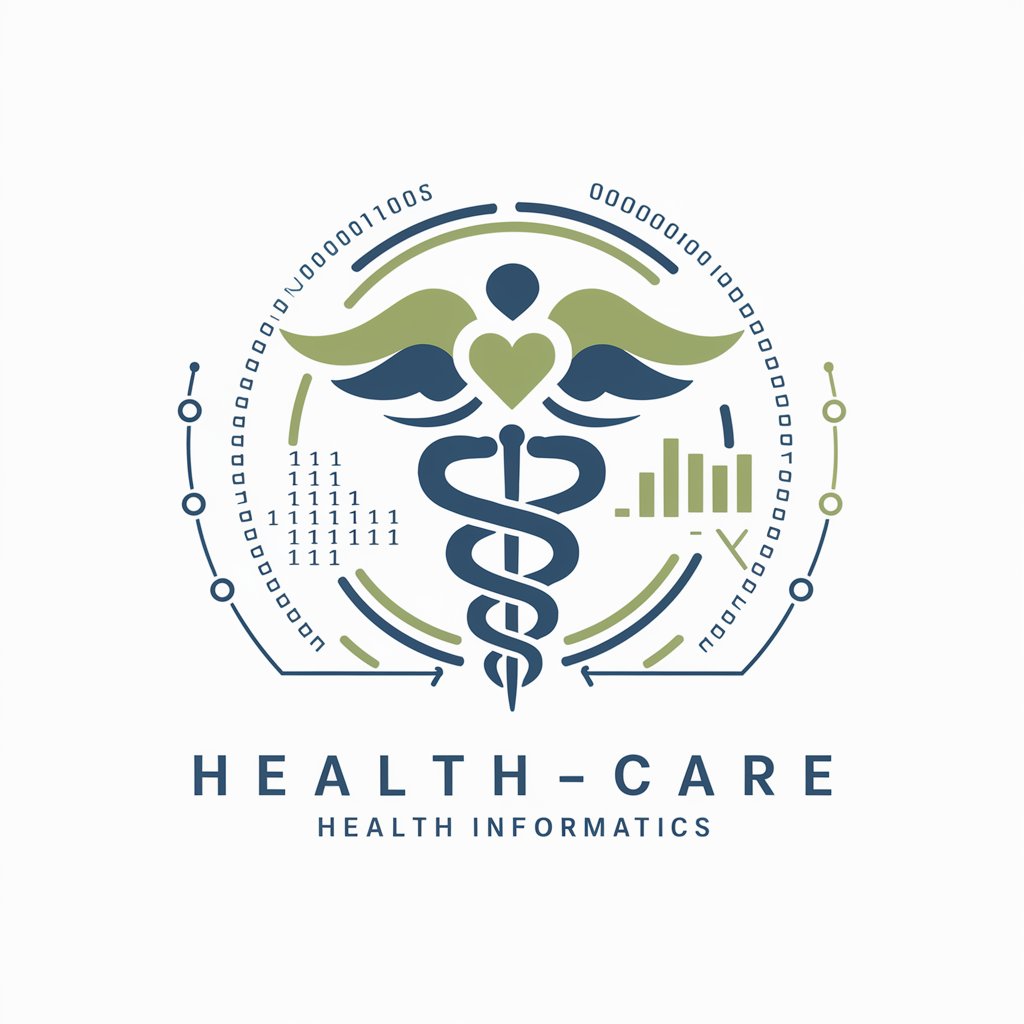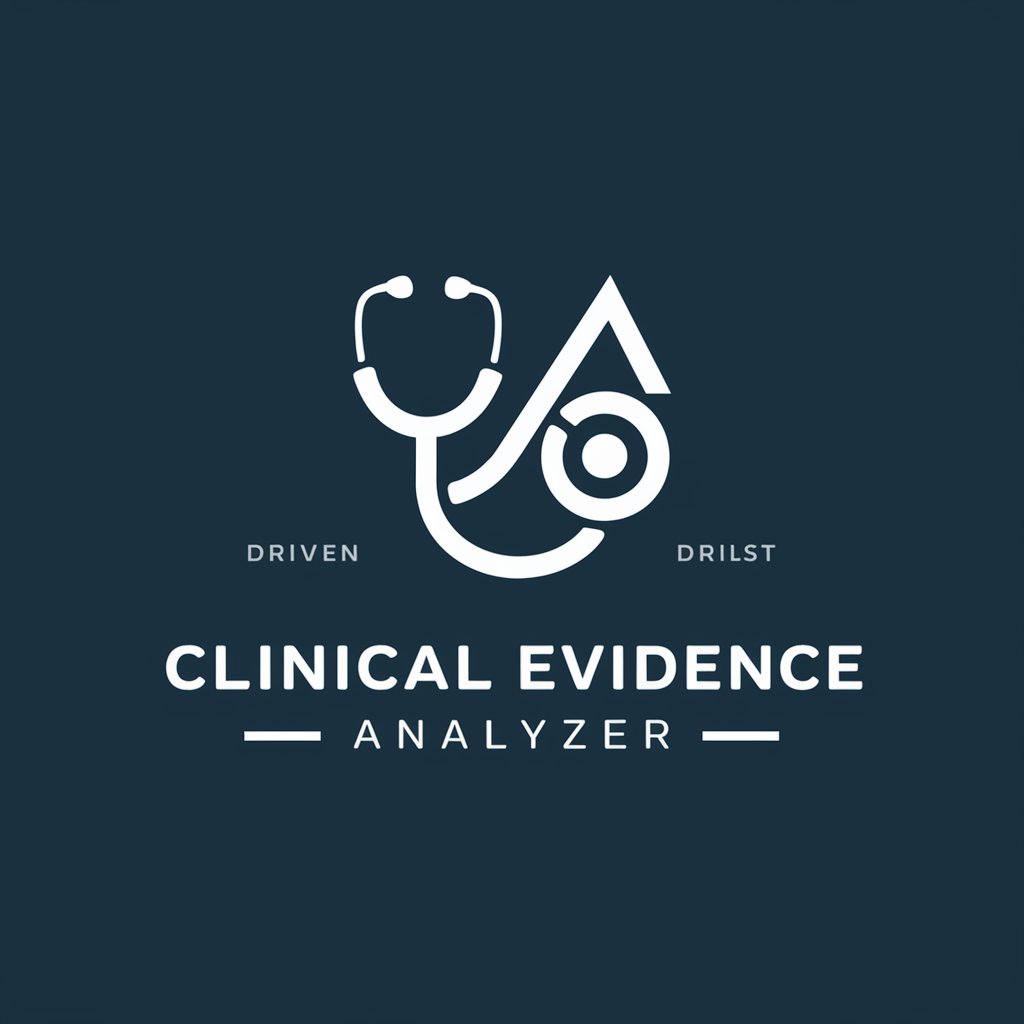
🔬Clinical Insights Data Cruncher📊 - Clinical Data Analysis

Empowering Clinical Decisions with AI
Help
Daily Briefing
I Want My Own GPT!
Feedback
Analyze this clinical study's results for efficacy trends.
Summarize the safety profile data from this trial.
Create a visual representation of patient demographics in this dataset.
Get Embed Code
Introduction to Clinical Insights Data Cruncher
The Clinical Insights Data Cruncher is a specialized AI tool designed to assist in the interpretation, analysis, and visualization of clinical data. It is tailored to support healthcare professionals, researchers, and data analysts by offering advanced data processing capabilities. This tool leverages machine learning algorithms and natural language processing to sift through vast amounts of clinical data, extracting meaningful patterns, trends, and insights. For example, it can analyze patient records to identify potential risk factors for specific conditions, or evaluate the effectiveness of different treatment protocols by comparing patient outcomes across various demographics and health profiles. Powered by ChatGPT-4o。

Main Functions of Clinical Insights Data Cruncher
Data Analysis and Visualization
Example
Automatically generating graphs and charts that highlight key trends in patient recovery rates over time.
Scenario
A hospital uses the tool to visualize the impact of a new rehabilitation program on stroke patients, enabling quick adjustments to treatment strategies based on real-time data.
Pattern Recognition and Risk Assessment
Example
Identifying patterns in patient data that may indicate an increased risk of developing chronic diseases.
Scenario
A healthcare provider uses the tool to screen patient records for early signs of diabetes, allowing for preventative measures to be taken before the condition worsens.
Treatment Outcome Analysis
Example
Comparing the effectiveness of different drug regimens in treating a particular disease.
Scenario
A pharmaceutical company employs the tool to analyze clinical trial data, determining which drug formulation is most effective for a target demographic.
Predictive Modeling
Example
Forecasting patient admission rates based on historical data and current health trends.
Scenario
A hospital administration uses the tool to predict patient load for better resource allocation, ensuring that staffing levels are optimized for predicted patient admissions.
Ideal Users of Clinical Insights Data Cruncher Services
Healthcare Professionals
Doctors, nurses, and healthcare administrators who require insights into patient data to improve care delivery, operational efficiency, and patient outcomes.
Medical Researchers
Individuals conducting studies on diseases, treatments, and healthcare policies benefit from the tool's ability to analyze large datasets, identifying trends and outcomes that might not be visible through traditional analysis methods.
Healthcare Data Analysts
Specialists focused on interpreting healthcare data, who use the tool to streamline their workflow, enhance their analyses with advanced AI capabilities, and provide more accurate predictions and recommendations.
Pharmaceutical Companies
Organizations involved in drug development and clinical trials can use the tool to process and analyze trial data more efficiently, aiding in quicker decision-making regarding the efficacy and safety of new medications.

How to Use Clinical Insights Data Cruncher
1
Begin by accessing a free trial at yeschat.ai, which does not require a login or a ChatGPT Plus subscription.
2
Choose a specific clinical dataset or question you wish to explore, ensuring it aligns with your research or clinical question.
3
Utilize the tool's features to input your data or questions, employing filters or specific commands to tailor the analysis.
4
Review the generated insights, which may include statistical analyses, predictive modeling, or textual interpretations, to support clinical decision-making.
5
Apply the insights to your clinical or research context, using the tool's outputs to inform evidence-based decisions or further investigations.
Try other advanced and practical GPTs
🌟 Sales Pitch Prodigy GPT 🌟
Elevate Your Sales Pitch with AI

🔬 Pharma R&D Innovation Engine 🧪
Empowering Pharma Research with AI

🧬Genome Guide - Genetic Counsel🔬
Empowering genetic insights with AI.

🔒 CyberGuard Compliance Expert
Navigate compliance effortlessly with AI.

🔏IP Law Navigator👩⚖️
Navigating Intellectual Property, AI-Powered

🚀 Agile Sprint Assistant 🤖
Streamline Agile Projects with AI

🌿 Eco Data Analyst Pro 📊
Transforming Data into Eco Action

🎓 Curriculum Crafter ProGPT 📘
Empowering educators with AI-driven curriculum design.

Charm-AI: Customer Bonding Wizard 🤝💬
Deepen customer relationships with AI.

📈 Digital Ad Pulse Bot 🤖
Empowering digital marketing with AI

📈 SEO Content Strategist Bot 🤖
Elevate Your SEO with AI-Powered Insights

📦 Supply Chain Insight Engine 🔄
Optimize Your Supply Chain with AI

FAQs about Clinical Insights Data Cruncher
What types of data can Clinical Insights Data Cruncher analyze?
It can analyze a wide range of clinical data types, including patient health records, clinical trial data, and biomedical research findings, employing AI to extract and interpret complex datasets.
How does the tool assist in predictive modeling?
It utilizes machine learning algorithms to process historical data, identifying patterns and trends that can predict future clinical outcomes or disease progression, aiding in proactive healthcare planning.
Can it be used for personalized medicine?
Yes, by analyzing patient-specific data, it can support personalized treatment plans, predicting individual responses to treatments based on genetic, environmental, and lifestyle factors.
Is there support for academic research?
Absolutely, the tool is equipped to assist researchers in analyzing biomedical data, conducting meta-analyses, and validating hypotheses, significantly enhancing research productivity.
How can this tool improve clinical decision-making?
By providing real-time data analysis and insights, it helps clinicians make informed decisions, improving patient outcomes through evidence-based practices and reducing the risk of medical errors.





